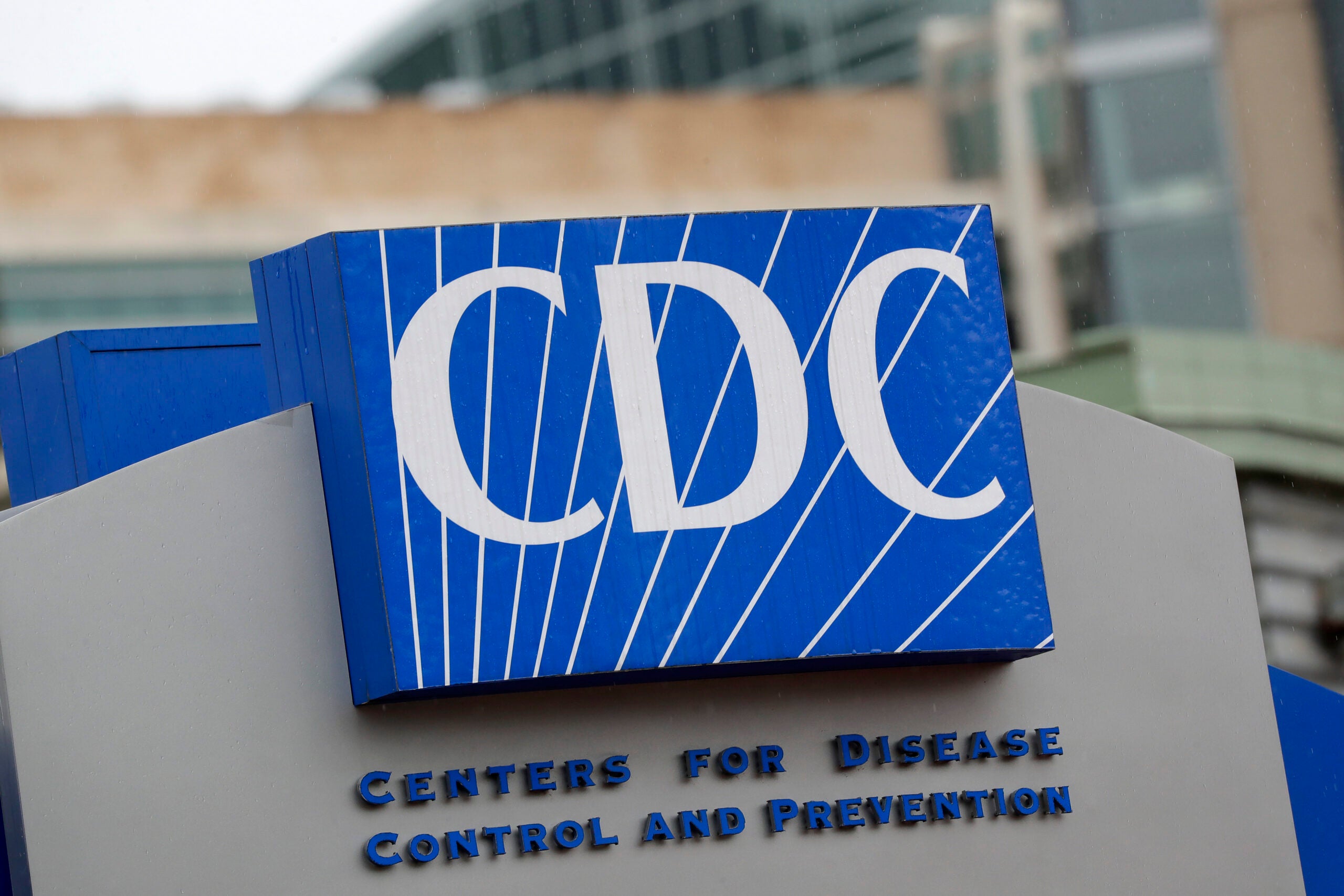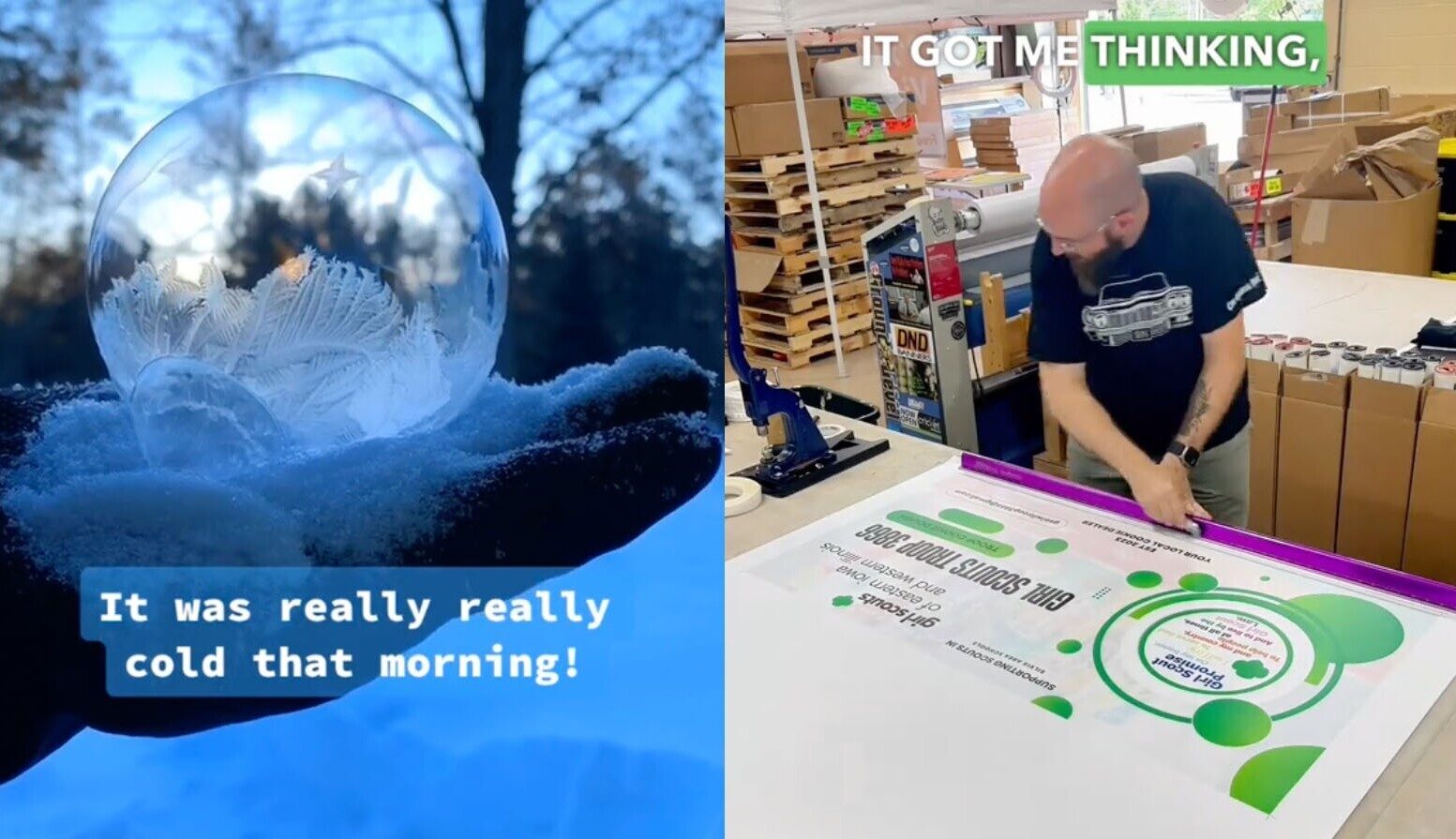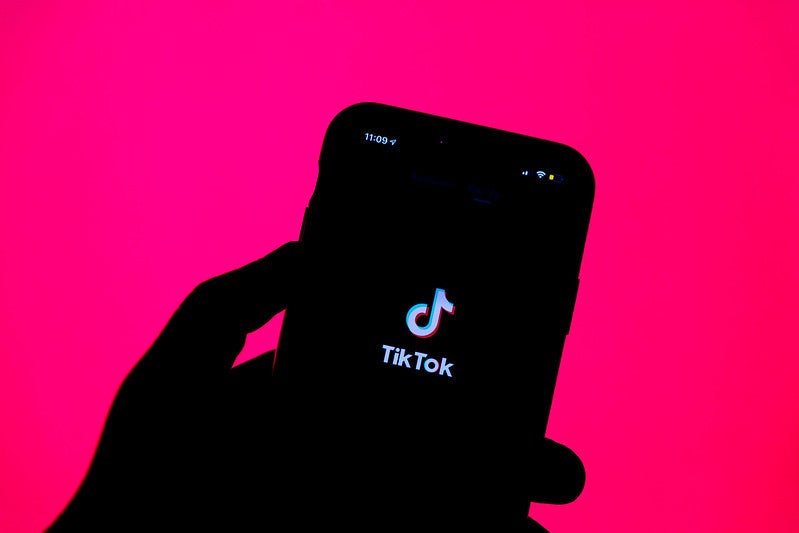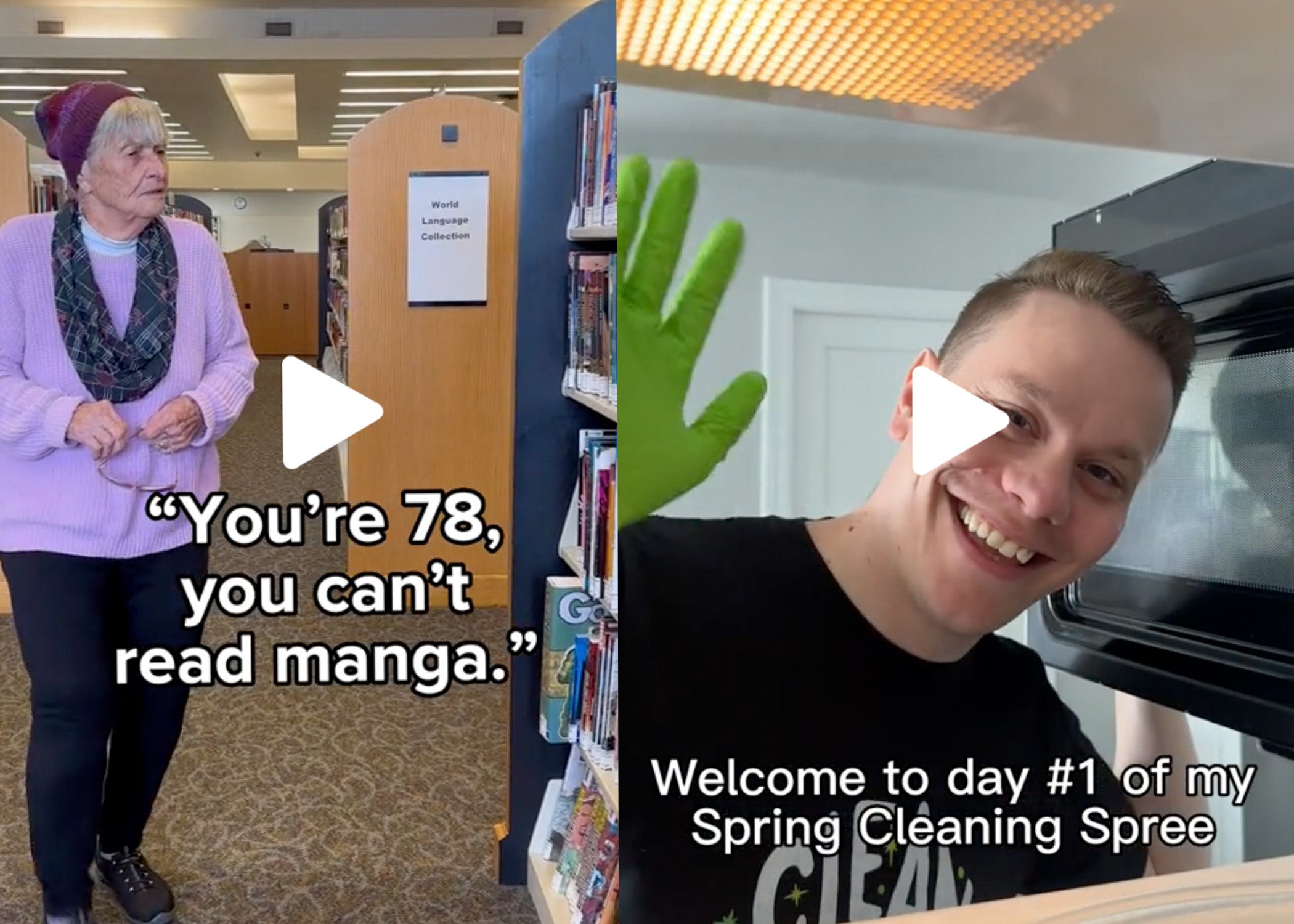Kate Speer knows the world of influencers well. For five years she was the CEO of the social media company the Dogist, growing the audience to 5 million followers. She managed “a whole slew of influencer marketing campaigns,” she says. “You know, for dogs or dog food … everything was for the sake of a bottom line.”
At the same time, Speer was building her own following around something very different – frank conversations around her experience with severe mental illness.
The talent managers she was working with at her day job noticed Speer’s appeal and said they could market her — if she was willing to make some tweaks. “I’ve been asked many times, could you just for a few months, build your pages out without having these hard-truth, nuanced conversations … talking about psych wards?” Speer says.
Stay informed on the latest news
Sign up for WPR’s email newsletter.
Speer says she wasn’t interested in projecting the image talent managers were looking for. But while she may have passed up an opportunity for lifestyle brand sponsorships and book deals, her posts attracted attention from a very different prestige institution – Harvard University.
In 2023, public health researchers at Harvard’s T.H. Chan School of Public Health launched a research project with a cohort of TikTok influencers, including Speer. The idea was to provide training to mental health creators, in hopes that they would spread evidence-based information about topics like the mind-body connection, inter-generational trauma, and mental health inequities – in their own relatable styles, of course.
Amanda Yarnell, senior director of the Center for Health Communication at theChan School, who led the study, says influencers are important media gatekeepers. “They have an audience that trusts them, watches them, listens to them, and we want to equip them to communicate health information effectively and accurately,” she says.
The researchers summed up their results in a preprint published in October entitled “Influencing the Influencers.”
Embracing ‘radical transparency’
A growing body of research links social media use with negative mental health impacts on young people, including with steep increases in depression and suicidality among teens. Teens can lose sleep spending hours online and can easily stumble on harmful information, such as accounts encouraging extreme dieting or self-harm.
If you or someone you know may be considering suicide, contact the 988 Suicide & Crisis Lifeline by dialing or texting 9-8-8.
But the social media ecosystem is vast, and millions of young people are online, searching for helpful information about #mentalhealth.So Yarnell and the other researchers wanted to see if social media could be used for good if they partnered with people like Speer.
Speer’s journey to becoming a mental health content creator started when she was misdiagnosed with bipolar disorder at age 18, and the medication she was on induced psychosis. When she wasn’t in the hospital, Speer says she spent most days in bed or ventured outside only after dark. She struggled with thoughts of suicide.
At first, her Instagram account was something she could hide behind. “I could basically circumvent the hard conversations of ‘I’m deeply disabled and unwell’ … with ‘here’s a pretty Vermont barn picture,” she said. Very 2013.
But after a few months, it felt disingenuous.
So instead, post by post, she began creating content that felt authentic. “I would write poems and I’d share that kind of subtle, more nuanced expressions of mental illness.” At the time, expressing that level of vulnerability on social media was novel. “I started getting a lot of positive feedback and I started getting braver,” she says.
Today Speer, who says she’s been correctly diagnosed with PTSD and ADHD, has more than 45,000 Instagram followers, plus over 11,000 followers on TikTok. She writes the blog “Probably Anxious” and lives with her husband and two service dogs.
Her videos both normalize mental illness and encourage followers to take small steps to improve their lives. Common themes include coping with anxiety, binge eating, and pushing back against stigma. Speer often appears in casual clothes without makeup. “Radical transparency is my jam,” she tells NPR.
A ‘social’ experiment
Harvard’s Yarnell says working with mental health influencers is an opportunity for public health communicators.
“Mental health is one of the biggest public health crises of our time,” she says. “People want to feel seen, they want to feel like people understand them. And that rawness, that authenticity that is driving social right now, I think is the right match.”
For their study, Yarnell and the research team included 62 mental health content creators active on TikTok. They chose creators with more than 10,000 followers, who were 18 and older, and who spoke mainly in English on the platform. The team prioritized including influencers from populations often not reached by public health campaigns, including Black, Latinx, Asian, and LGBTQ+ creators.
They excluded anyone who posted “problematic content.”
“An example of a red flag would be someone who promoted ‘TikTok is therapy,’” Yarnell says. She says this screening process placed some creators with larger follower counts out of reach – but integrity took priority.
The cohort included mental health professionals like Adriana Alejandre, a marriage and family therapist (@latinxtherapy), and psychiatrist Alok Kanojia (@healthygamer.gg), as well as creators, like Speer, who speak from their own lived experience.
Participants received basic educational materials on popular mental health topics, based on research from Harvard and Harvard-affiliated institutions. The five core themes were: closing the mental health care gap, inter-generational trauma, the connection between physical and mental health, and addressing climate grief. About half of participants also got a series of Zoom trainings with the researchers.
During April 2023, the researchers observed an increase in posts on these core themes. Taken all together, posts created by influencers got over half a million more views compared to posts the creators made on the five themes before the Harvard intervention.
Yarnell says this is encouraging news institutions looking to work with influencers to push their messages out. “It suggests that there are scalable ways to reach many, many creators with evidence to help them help us improve the mental health information ecosystem on platforms like TikTok,” she says.
How Harvard influenced Speer’s approach
This fall, Speer produced a series of videos on anxiety, each in the form of a mini-lesson. Speer says while those posts were mostly shaped by her experience with exposure therapy, she conducted additional research and checked with the team at Harvard to make sure the science was correct.
Some of the lessons concluded with simple assignments for followers, like writing down the physical sensations and thoughts that come up when you experience anxiety.
Speer says she found the science literacy training from Harvard especially helpful.
“Moving through those tool kits and learning the media literacy components empowered me to look at my own therapeutic experience, my lived experience and say, okay, what can I read in the literature and disseminate through stories that can help people better navigate this?” Speer says.
This fall Speer also started working with Bryn Austin, a professor of social and behavioral sciences at Harvard, to get the word out about the risks of over-the-counter weight loss supplements to teens.
Austin directs STRIPED, the Strategic Training Initiative for the Prevention of Eating Disorders, at the Harvard Chan School of Public Health and Boston Children’s Hospital, and the group advocates for the passage of laws to limit their sale to minors.
“From our research, we know that girls and young women who start to use these products have four to six times the risk of being diagnosed with an eating disorder within just a few years,” Austin says.
Supplements sold for weight loss and muscle building, including laxatives, diuretics and stimulants, have been linked to side effects including heart disease, hepatitis and liver failure. Some products have been banned by the FDA.
Coping with disordered eating and body insecurity are frequent topics on Speer’s TikTok and Instagram channels. She says she began experimenting with laxatives and other over-the-counter weight loss supplements in 8th grade and continued into her 20s in an effort to “look right” even as her mental health deteriorated.
In October, a bill to prohibit the sale of over-the-counter weight loss supplements to minors in New York reached the desk of Governor Kathy Hochul. Speer asked her followers to click a link to send a message to Hochul’s staff encouraging her to sign the legislation, and to tag the governor’s account.
Austin says compared to STRIPED’s previous efforts to reach elected officials via social media, they saw a tenfold increase in the number of people who visited the link and sent a message. Hochul did sign the bill, which requires both online and brick-and-mortar retailers to restrict sales of supplements marketed for weight loss to shoppers over 18.
A funded future for academic-influencer partnerships?
Speer wasn’t paid for her posts about the New York legislation. However, she submitted a grant application with Yarnell and Austin last fall that would support her to work with the Chan School to advocate for similar legislation in other states.
Austin says if they receive the grant, it would also enable STRIPED to work with more content creators. And she sees this effort as part of a bigger trend, and an important investment in public health.
“When influencers can only survive by taking money from predatory companies to put disinformation out, that’s bad for public health and that’s bad for society,” Austin says. “We need to be able to create an opportunity for them to make a living, use their gifts for storytelling and communication, but for good….That’s the direction I see us in public health and in academic research needing to go.”
Speer says she’s had conversations with Dartmouth too. Academic partnerships haven’t brought in any income yet. But considering how far she’s come, Kate says to live a life where she can share her story with purpose is its own reward.
“Doctors 10 years ago wanted and planned for me to spend my entire life in a locked psychiatric unit,” she says. “The work I do is what feeds my soul. My husband would like it to pay our mortgage, but that’s okay. We’ll get there.”
Andrea Muraskin is a contributor to NPR’s Shots blog and writes the weekly NPR Health newsletter. She lives in Boston.
9(MDAyMjQ1NTA4MDEyMjU5MTk3OTdlZmMzMQ004))
© Copyright 2025 by NPR. To see more, visit https://www.npr.org.9(MDAyMjQ1NTA4MDEyMjU5MTk3OTdlZmMzMQ004))




